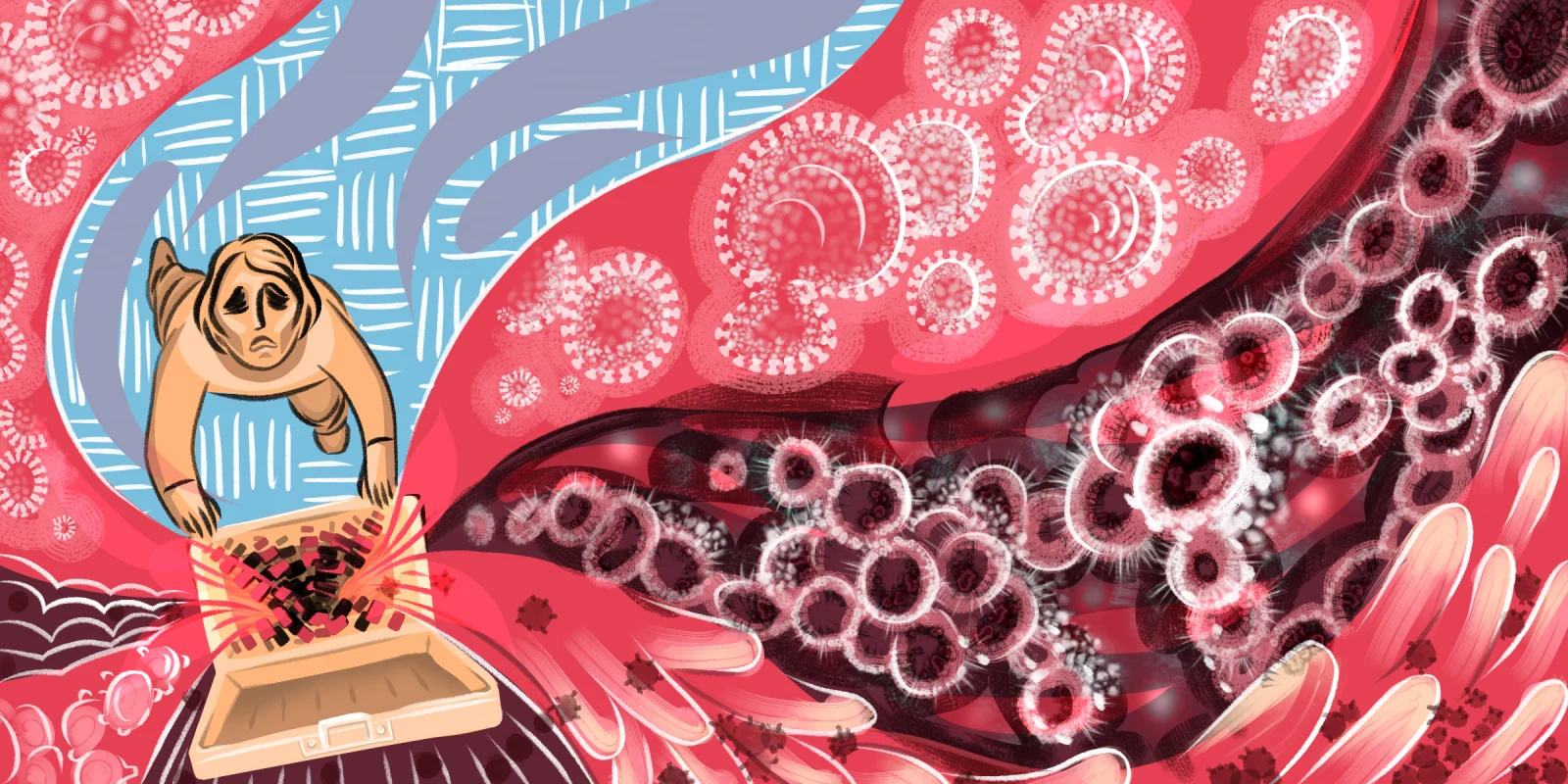Perhaps like you, I can now call myself a doctor who served in the worst days of the COVID-19 pandemic. Without a tidy cinematic ending we are left to keep processing our stories. And every once in a while we find an unexpected talisman that transports us back into the crucible of those desperate and surreal times.
In the early days of COVID I still had a cubicle with a desk. But as the pandemic wore on, it laid waste to communal work environments like rows of cubicles, and many would consider that a merciful outcome. I saw patients and charted their lives entirely in examining rooms instead. So that dusty cubicle desk became a time capsule of sorts.
Recently, I revisited the desk. I had been looking for my medical license to renew, but found myself struck by something else I stumbled upon: a handwritten note by my then 8-year-old daughter. The bright runes had been written in a dark time. The note read: Don’t follow your dreams, chase them!
When I read my daughter’s words, I felt my throat tighten and my eyes sting with salt. The depth of my buried feelings surprised me. I had taped this note to a door in the rental house my family was living in at the start of lockdown. We were stranded outside our water damaged home, deprived of our usual sanctuary. Shortly thereafter we hedged our bets against a lethal virus and decided my wife would stay in a second rental apartment for a while, away from us, as she took her turn caring for COVID patients.
As I looked at the note, I was reminded anew of the trauma of the early pandemic. We were separated from each other, and displaced from our home. It was a time of great collective and individual sorrow. Schools closed. Childcare vanished. Supply chains buckled. Patients coughed incessantly across screens, some struggling to breathe, and a previously healthy colleague close to my age failed the ventilator and was placed on ECMO. We signed newly written wills outside on a dirty sidewalk with a lawyer.
Don’t follow your dreams, chase them! The note conjured for me a moment of reckoning. It was, to quote a favorite song by The Sundays, “That little souvenir of a terrible year which makes my eyes feel sore.”
I had forgotten about my daughter’s little note until it was rediscovered. Those dreams I chased were not small, but rather the essential parts of a good life.
I dreamed of outlasting the pandemic. Friends, family, colleagues, patients, all of us making it. I ran through the indifferent cruelty of people dying in isolation, the scrawled messages held up to windows, the futile search for PPE. The ill city, an infected beehive, the quiet skies above and howling homes below. The masks, the muzzling, the miracle of micrometer shields. The crushing workload. The limited tools. The scientific rabbit holes, dark and deep in the sleepless nights. Refrigerator trucks. Temporary hospital wards and tents in parking lots. Drive-through nasal swabs, eyes watering, performed by cryptic figures in space suits hovering over abandoned parking lots. Do I have it? Someday we’ll have a vaccine, won’t we? A treatment? Hugs?
I dreamed of making it home again. Physically and metaphorically. Dealing with a broken home during lockdown was an unfixable situation. Rains brought no cleansing, only more damage. I coordinated contractors and sourced materials in between desperate patient visits, or while driving to and from those front lines. The notion of home a betrayal, a refuge denied. The world spinning without an anchor. Unmoored. And I was aware that for many families another situation was true. Their homes became a kind of prison. A place filled with griping and an uncomfortable juxtaposition of self and others.
I dreamed of returning to the promised land from which we were banished. Eden was nowhere exotic, just somewhere normal. There were children playing in this land, their laughter and squeals manna from heaven. In this land there were dinners with clinking wine glasses, concerts with transcendent music, travels to different countries, and once again, hugs. The kind of hugs where you wrap your arms around someone, and they do the same back to you. Oxytocin and milk and honey. A crowded Thanksgiving table. A cozy seat by the fire.
That day, as I stood looking at my daughter’s note, I thought about what happened after the height of the pandemic had passed, and the vaccine became available: Slowly, the world reappeared, like a polaroid picture coming into focus. Schools became schools again. Friends and family and dinner and music and travel and embraces trickled back into our waking lives.
And we moved home. We finally slept in our own beds. Our own beds. A full kitchen with a full pantry. A table around which to give thanks. A glorious parking spot in the city. At times I felt euphoric simply living a dream of normalcy, even if only partially real and restored. Eden was always a smoldering place.
Looking at my daughter’s note that day reminded me that even as I bury my emotions, they are still there, lying in wait to be contended with in unexpected moments. Even though the worst of the pandemic may be over, our story of resilience has a complicated, untidy ending. The pandemic continues to harm us and our patients. I can’t forget the trauma, the loss of life, the disabilities sustained. Untold millions perished from the earth. Dreams often do not come true, no matter how hard we chase them.
My family and I are still actively in the process of recovering from our unique version of this collective trauma. But when I open the front door to my home after a long day at work, or when I watch my daughter walk eagerly into her school, hustling to catch up to her friends, or when I tearfully hug a family member that I had been separated or indeed estranged from — I can’t help a profound appreciation of that handwritten note my daughter scrawled in the middle of the storm.
What better way to encapsulate our will to live than a child’s simple call to action, clichéd and magnificent as it was: Don’t follow your dreams, chase them!
How are you processing the trauma of the ongoing pandemic? Share in the comments.
Ryan McCormick is a family physician and writes Examined, a newsletter about primary care and life in medicine available on Substack. He has been doing entirely clinical work for two decades, and lives in South Philadelphia. Dr. McCormick is a 2023–2024 Doximity Op-Med Fellow.
Illustration by April Brust






